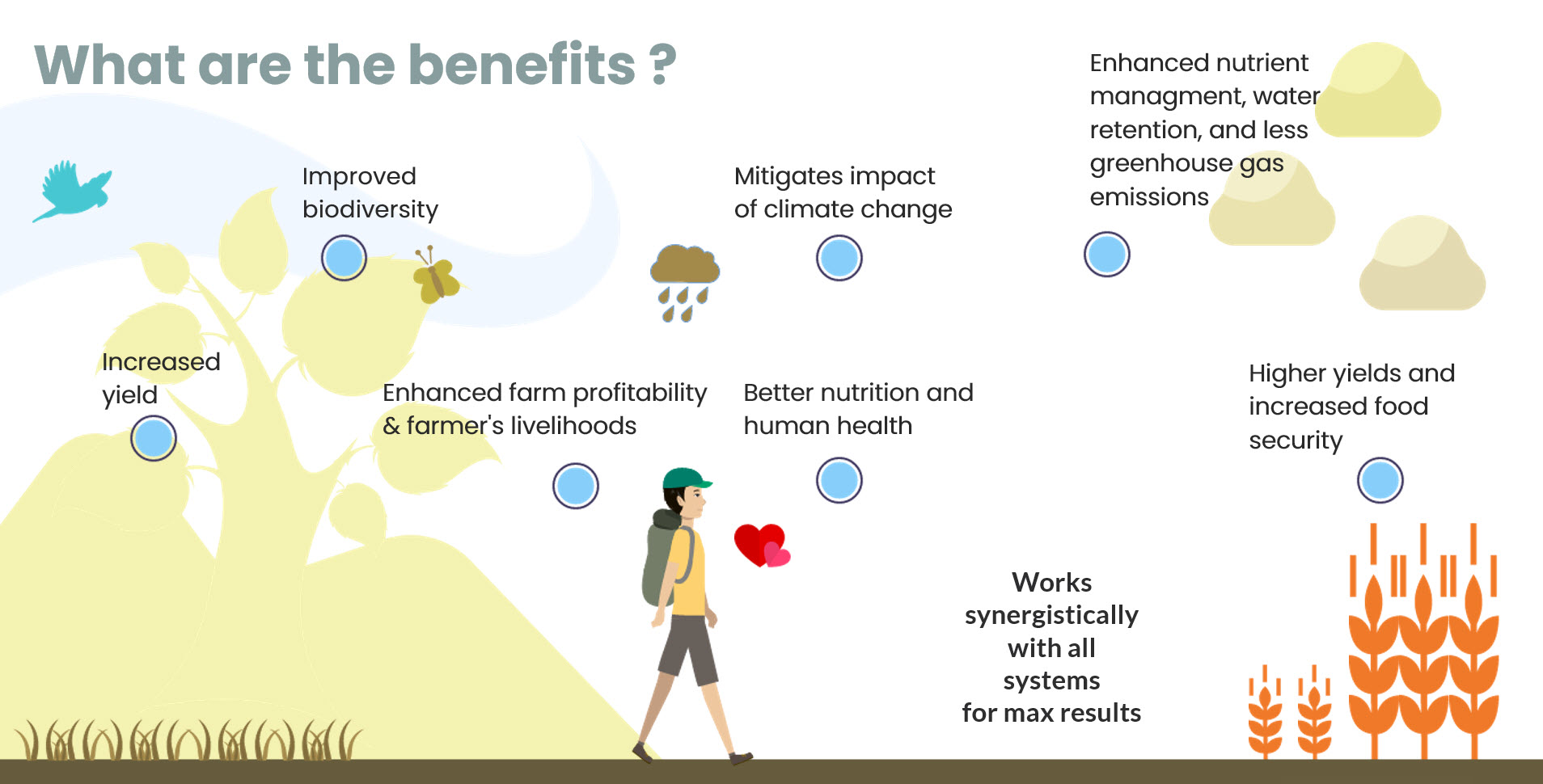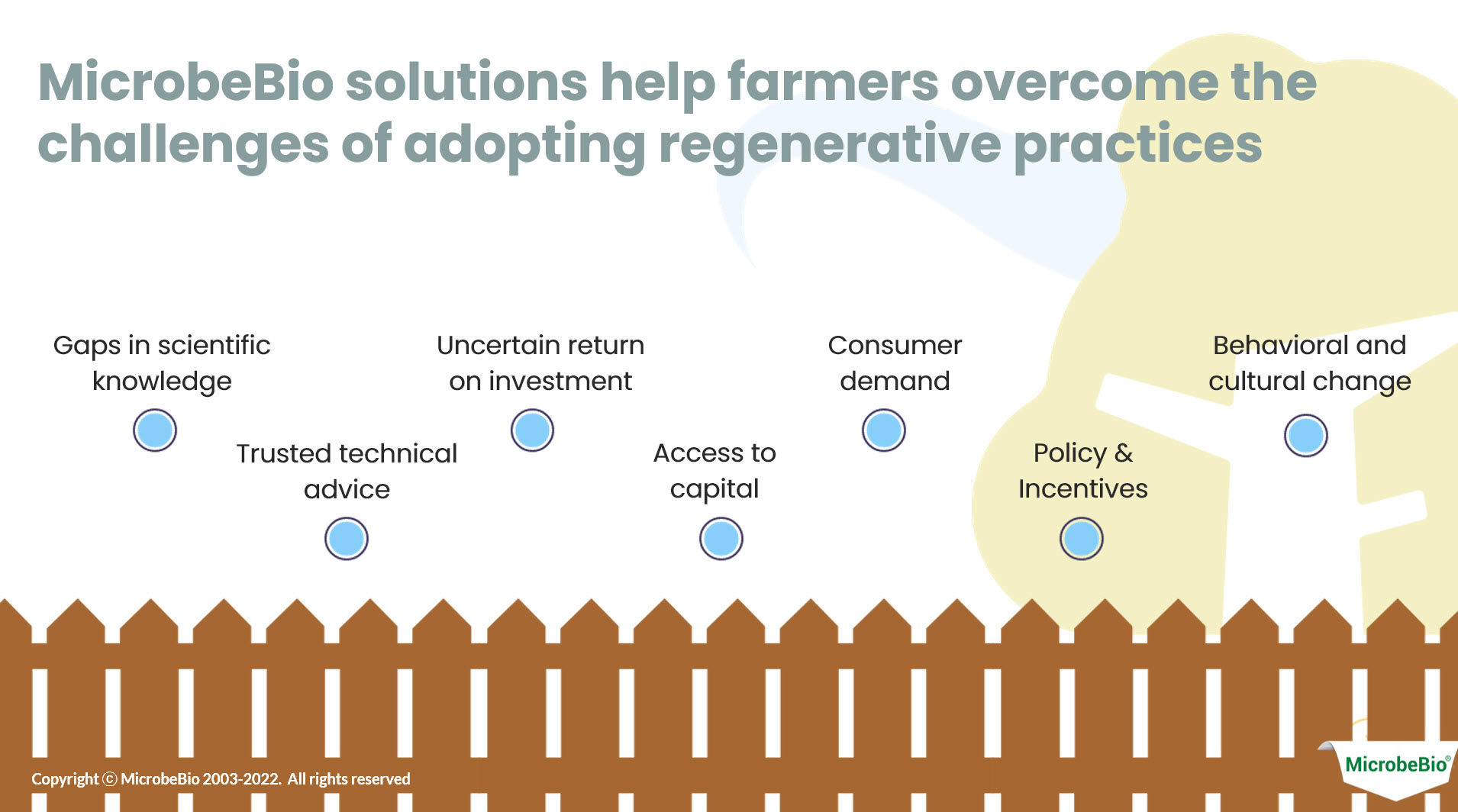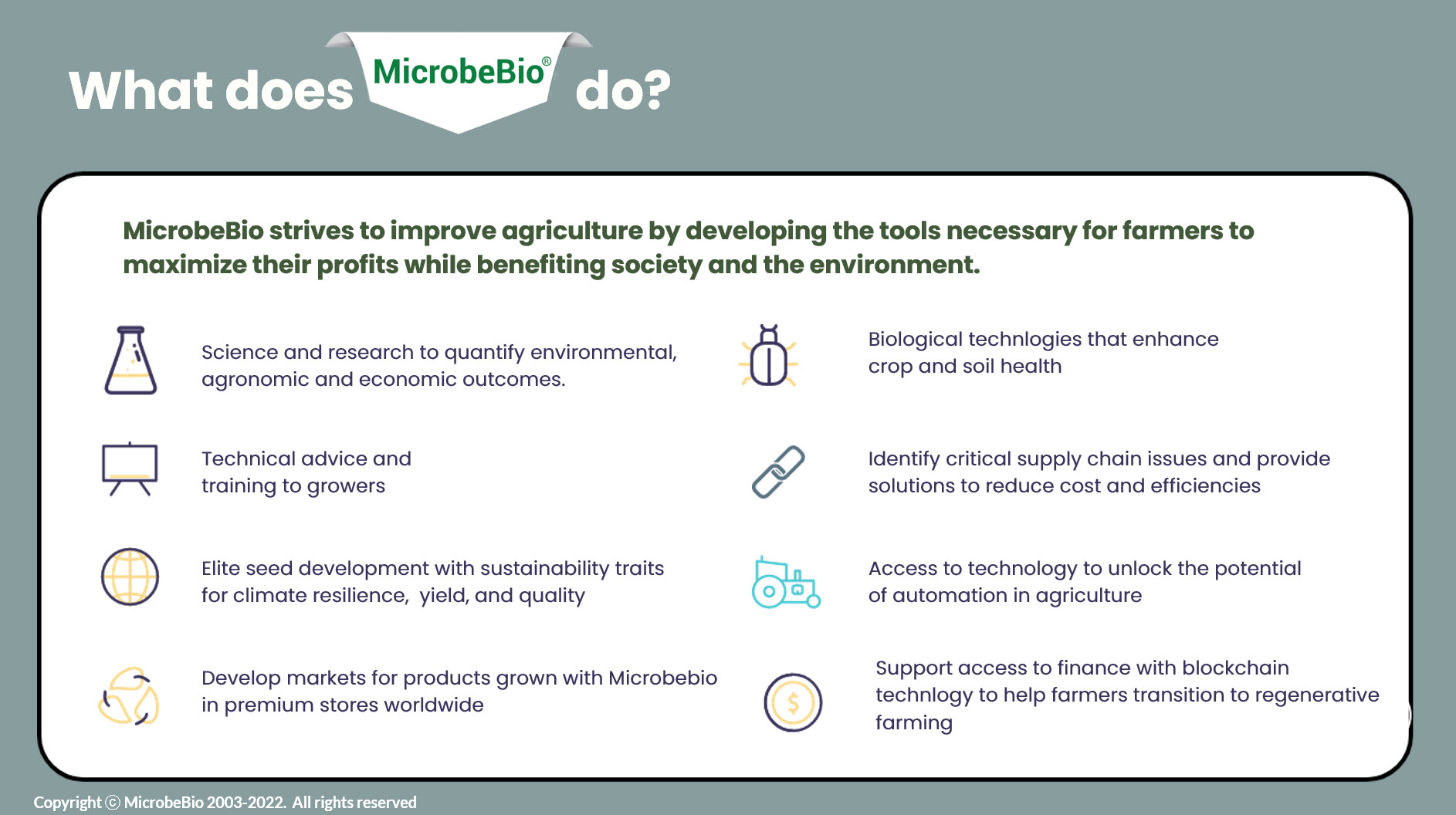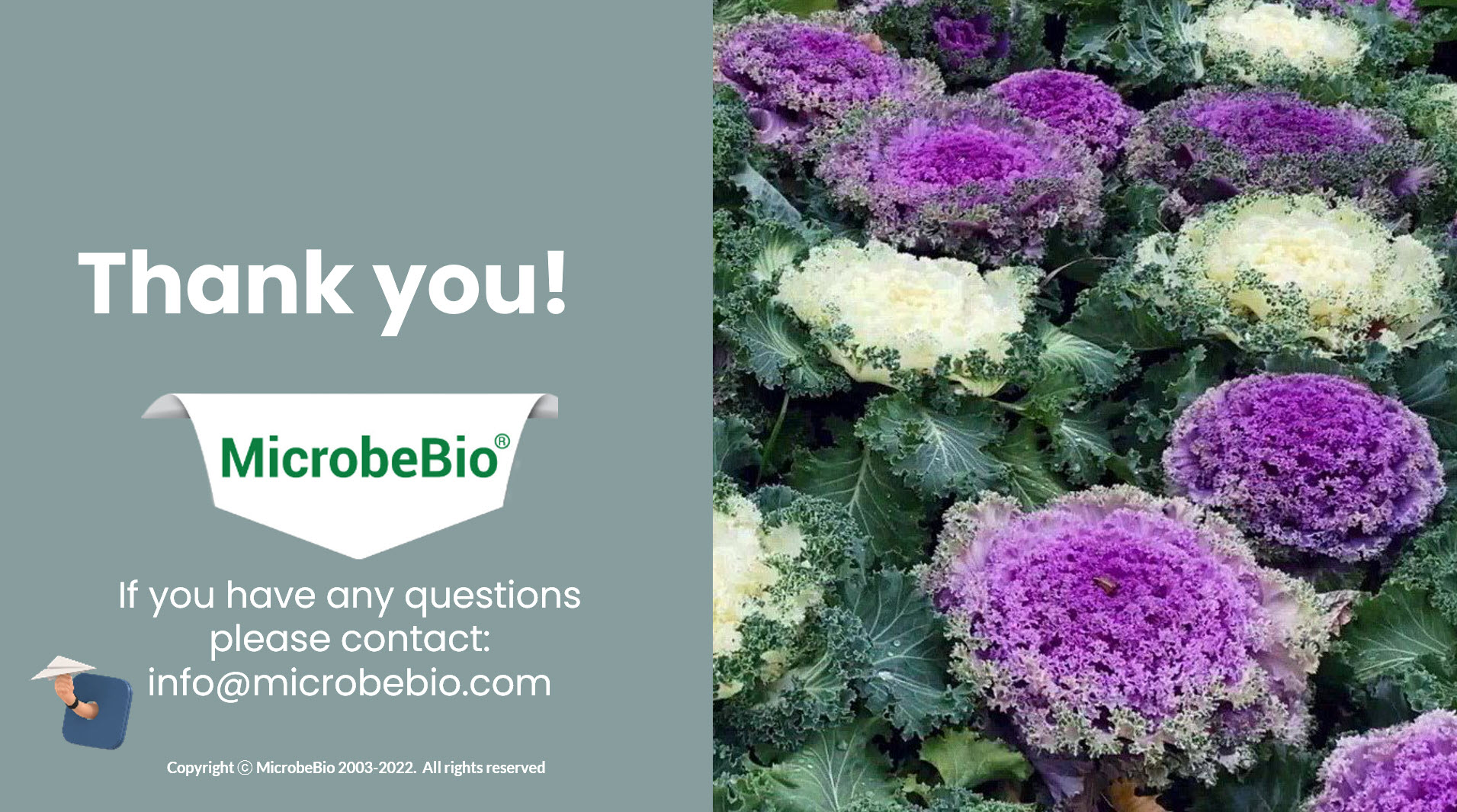
Regenerative
Farming
MicrobeBio is a regenerative farming system that supports farmers in producing food in a way that nurtures and restores soil health, protects the climate and water resources, and enhances farms’ productivity and profitability.
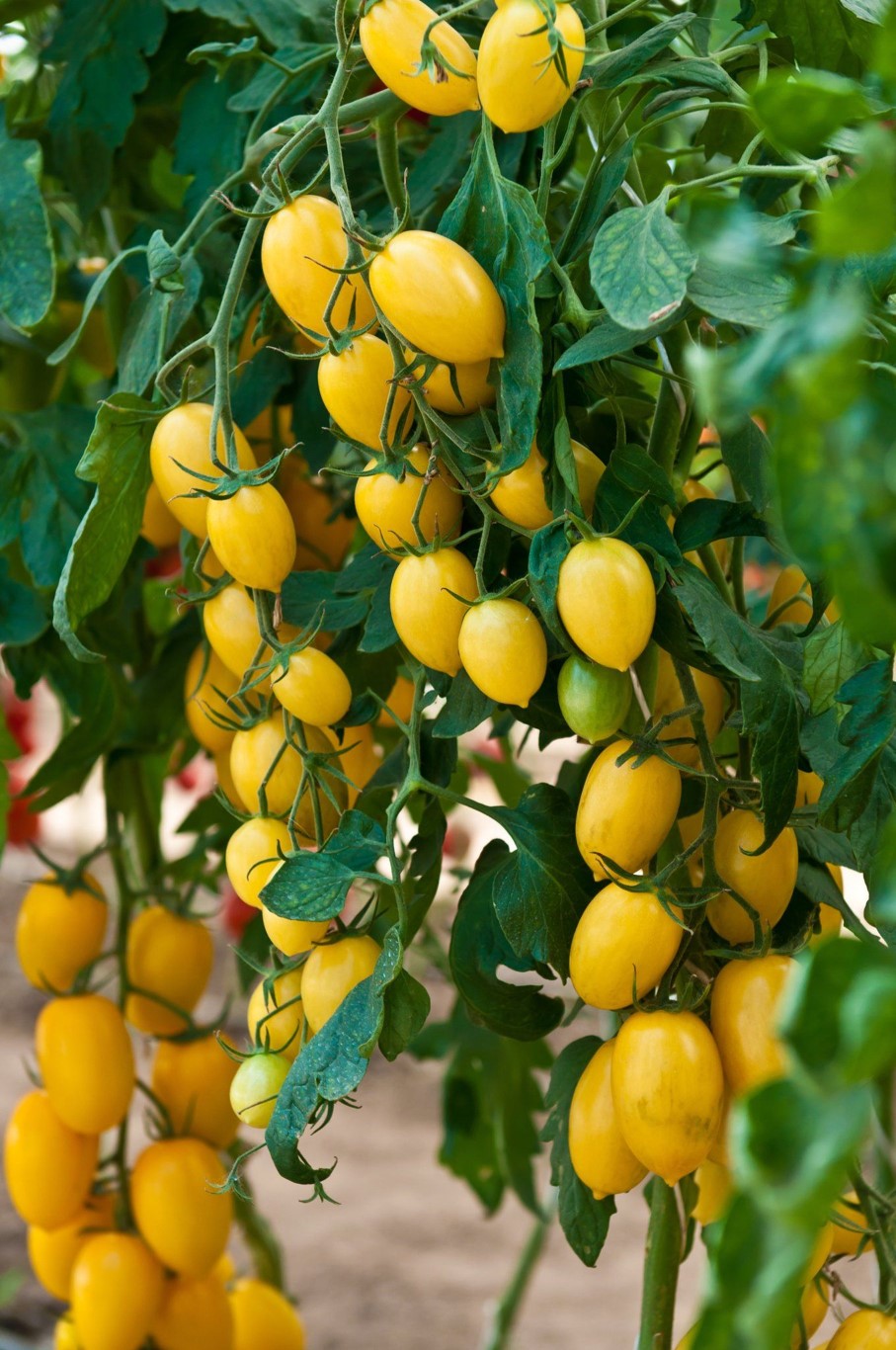
MicrobeBio is a regenerative farming system that supports farmers in producing food in a way that nurtures and restores soil health, protects the climate and water resources, and enhances farms’ productivity and profitability.
This system is based on the use of beneficial microbes to promote plant growth, reduce crop damage, and improve soil health. MicrobeBio farmers use a range of techniques to create and maintain healthy soils, including cover cropping, composting, and minimum tillage using microbes.
This approach to farming results in food that is not only nutritious and delicious but also supports the health of our planet. When we regenerate the soil, we create a more stable environment for food production, one that is less susceptible to the effects of climate change and that can help mitigate the impact of droughts and floods.
Soil health is essential to the success of regenerative farming. By using techniques that promote microbial activity, farmers can create soils that are richer in organic matter and better able to resist pests and diseases and improve the resilience of our food system to climate change.
If you are a farmer interested in learning more about MicrobeBio, or if you are a consumer interested in supporting regenerative agriculture, please visit our website or contact us today. Together, we can create a healthier future for our planet and all its inhabitants.
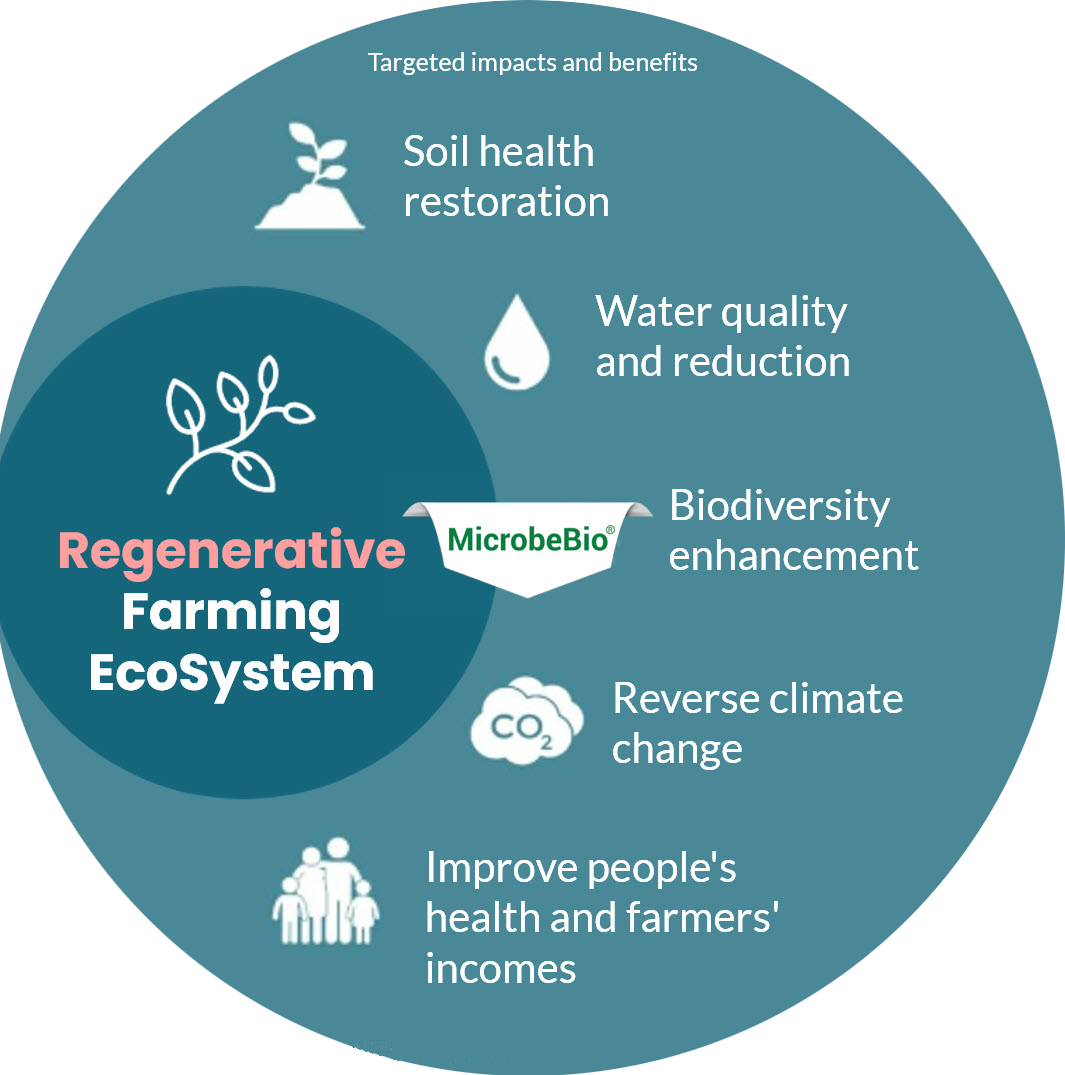
- Smart Farming Ecosystem UNDERSTANDING how all the parts fit together to improve quality, reduce costs AND improve efficiency.
- Diverse crop rotation introduces carbon smart crops on rotation to give farmers extra income while adding new value
- Biological fertilizers and pesticides eliminate chemical fertilizers, protect soil, boost nutrients, natural DECOMPOSITION, biological integrity
- Integrate livestock when possible to combine crops and plants in a circular system
- Automation maximizes capital efficiencies, reduce labor costs, & strengthens the supply chain
- Seed Development Elite seed development with sustainability traits for climate resilience, yield, and quality
- Waste management converts waste into ENERGY FOR self-reliance and reducing costs and reducing carbon.

For FARMER
MicrobeBio has developed a unique approach to regenerative agriculture that is customized to the needs of individual farms. This approach has the potential to increase the income of farmers and the profitability of farms.


For the ENVIRONMENT
Limiting deforestation and grassland conversion
MicrobeBio regenerative agriculture practices can help to restore degraded farmland and improve soil health. This can lead to increased yields from existing arable land, and prevent the need for farms to expand into new areas, causing deforestation. By using these practices, we can help to keep our landscapes healthy and productive.

For the ENVIRONMENT
Limiting deforestation and grassland conversion
MicrobeBio regenerative agriculture practices can help to restore degraded farmland and improve soil health. This can lead to increased yields from existing arable land, and prevent the need for farms to expand into new areas, causing deforestation. By using these practices, we can help to keep our landscapes healthy and productive.
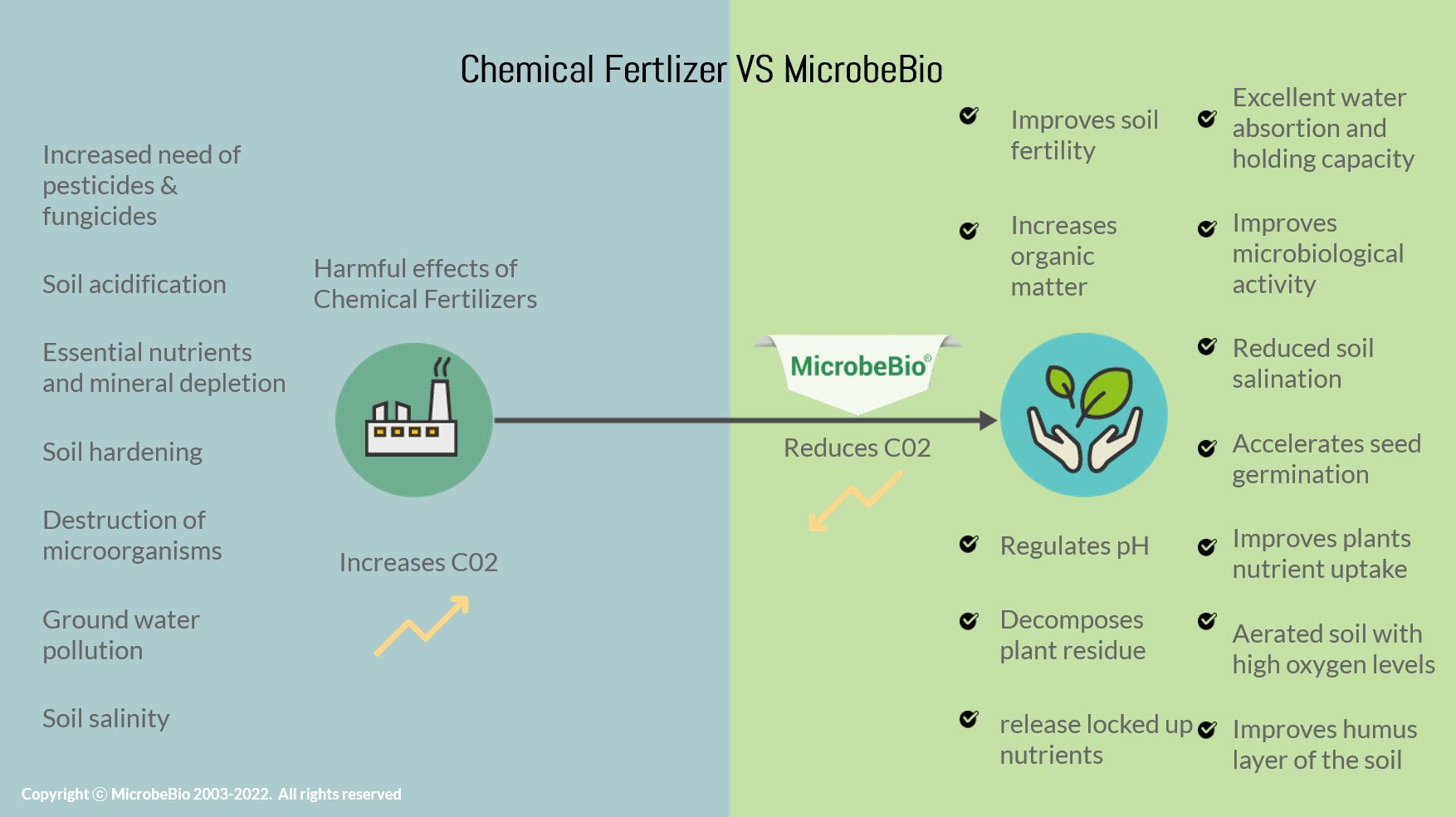
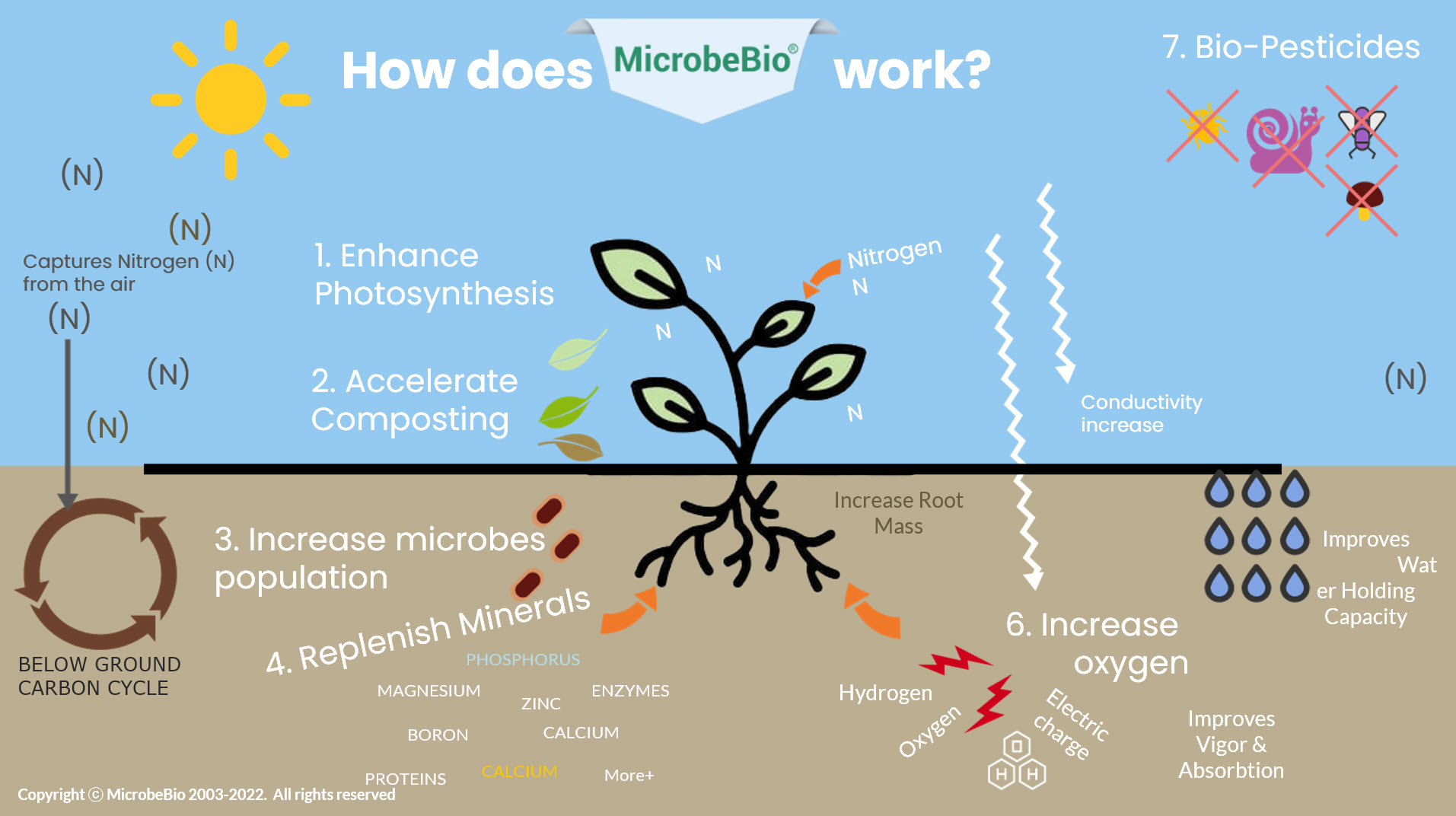
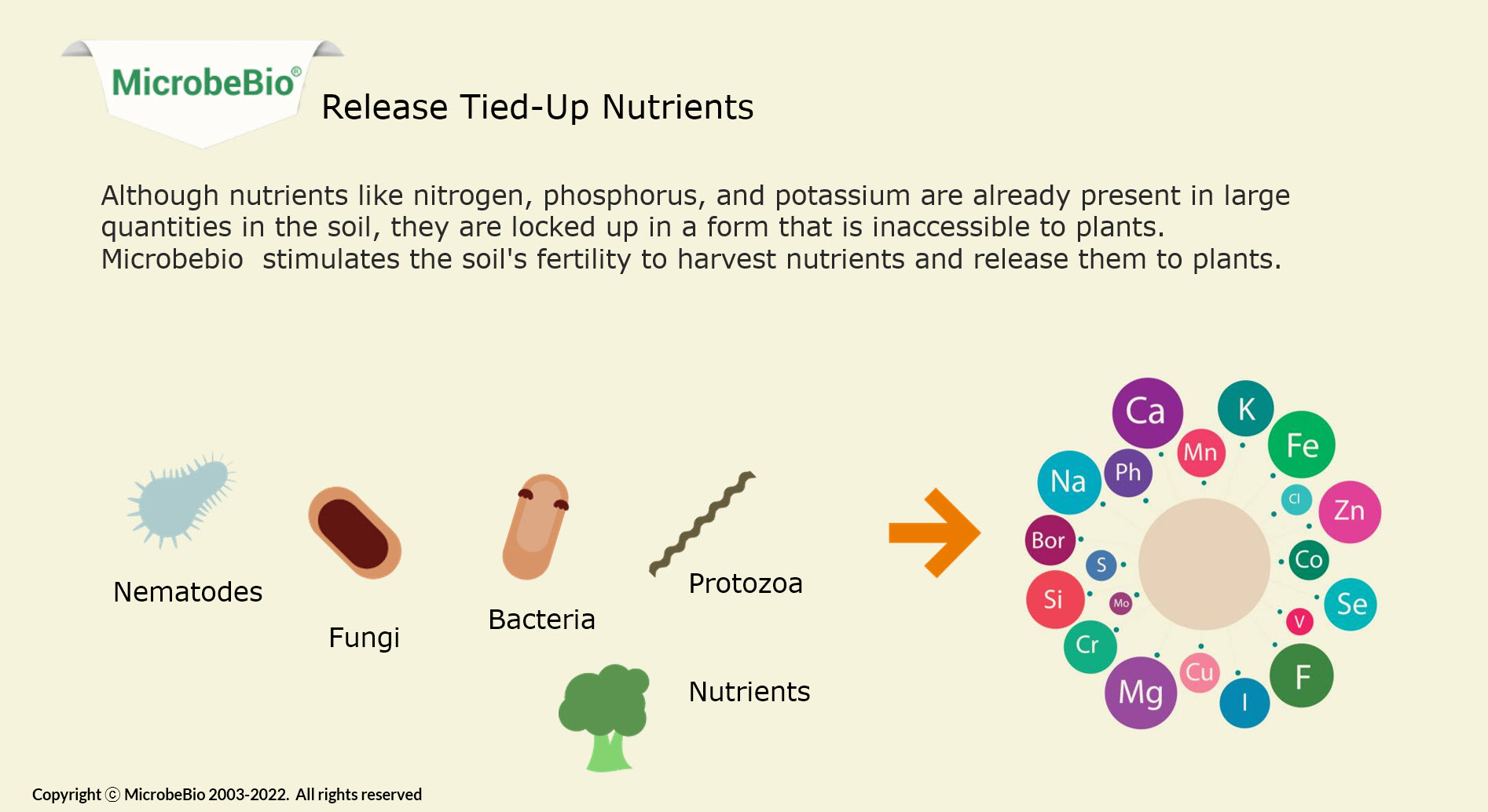

Increased productivity
One of the key principles of regenerative agriculture is reducing the need for synthetic inputs like fertilizers and pesticides. By using digital tools to gain a more comprehensive understanding of their crops and fields, farmers can target applications of these products more precisely, thus reducing the overall amount used. Not only does this lead to more sustainable practices, it can also save farmers money in the long run.

Increased productivity
One of the key principles of regenerative agriculture is reducing the need for synthetic inputs like fertilizers and pesticides. By using digital tools to gain a more comprehensive understanding of their crops and fields, farmers can target applications of these products more precisely, thus reducing the overall amount used. Not only does this lead to more sustainable practices, it can also save farmers money in the long run.
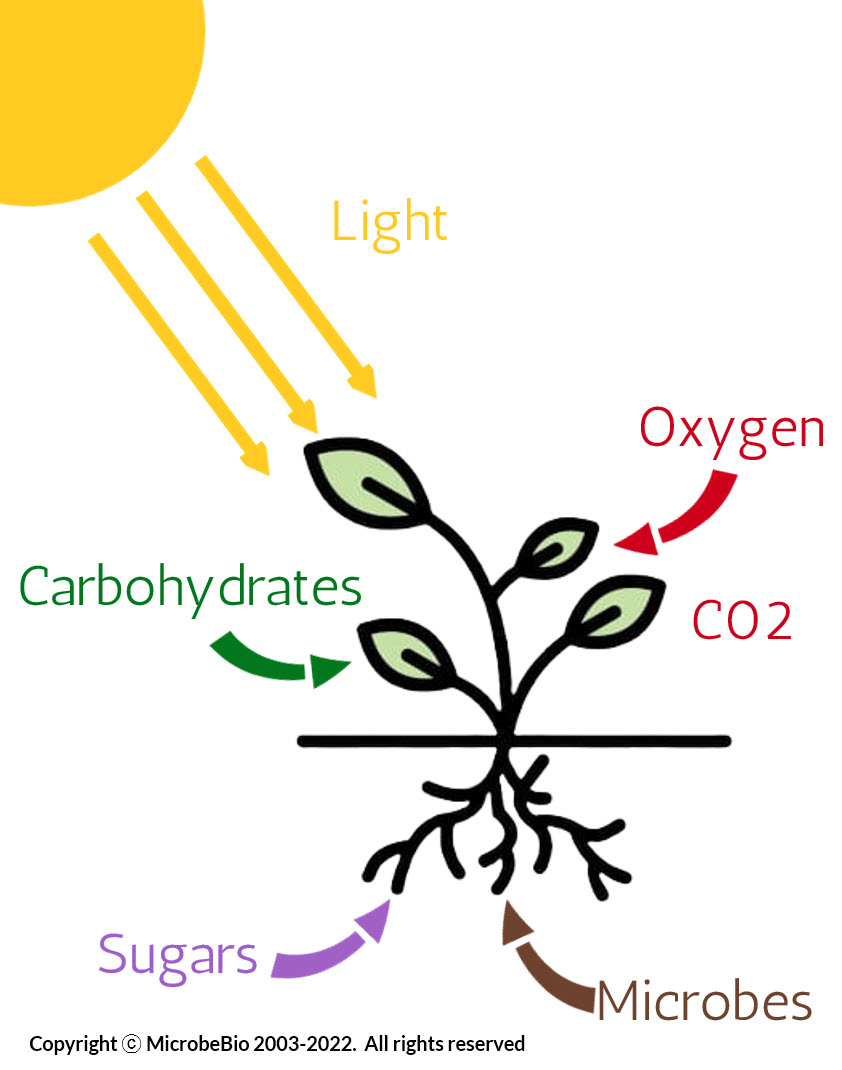

Improves PhotoSynthesis
MicrobeBio helps plants absorb more sunlight, increasing chlorophyll production in the leaves. The more light absorbed, the more sugars (brix) and carbohydrates can be stored in the leaves, making the plant greener. Excess sugar production exudes from the roots and feeds microbial activity in the soil. As a result, animals fed MicrobeBio grass consume more calories while consuming less grass. This results in increased efficiency and capital expenditure. MicrobeBio enhances the growth of cows by catalyzing the interaction of sunlight, air, and soil.
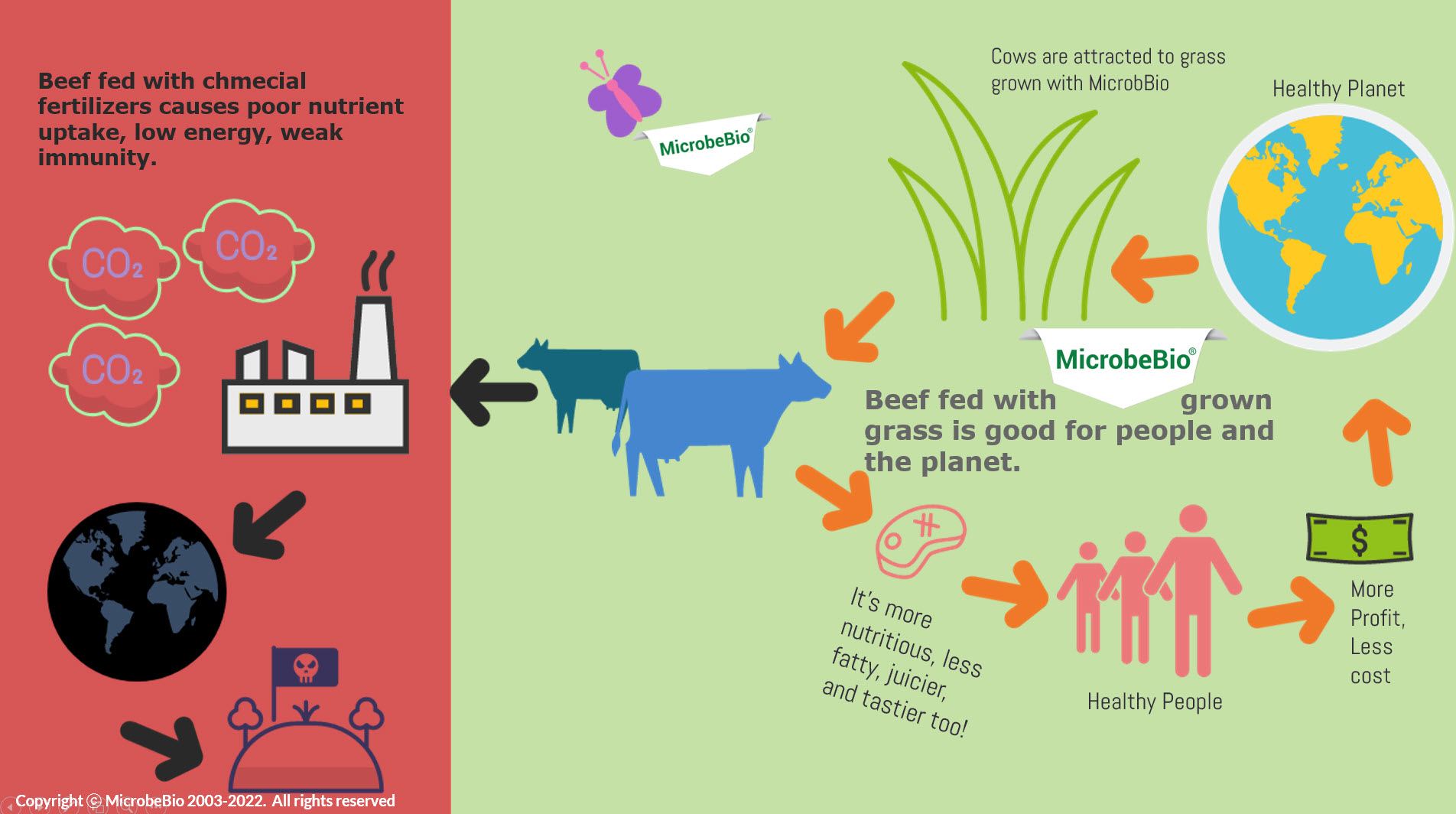
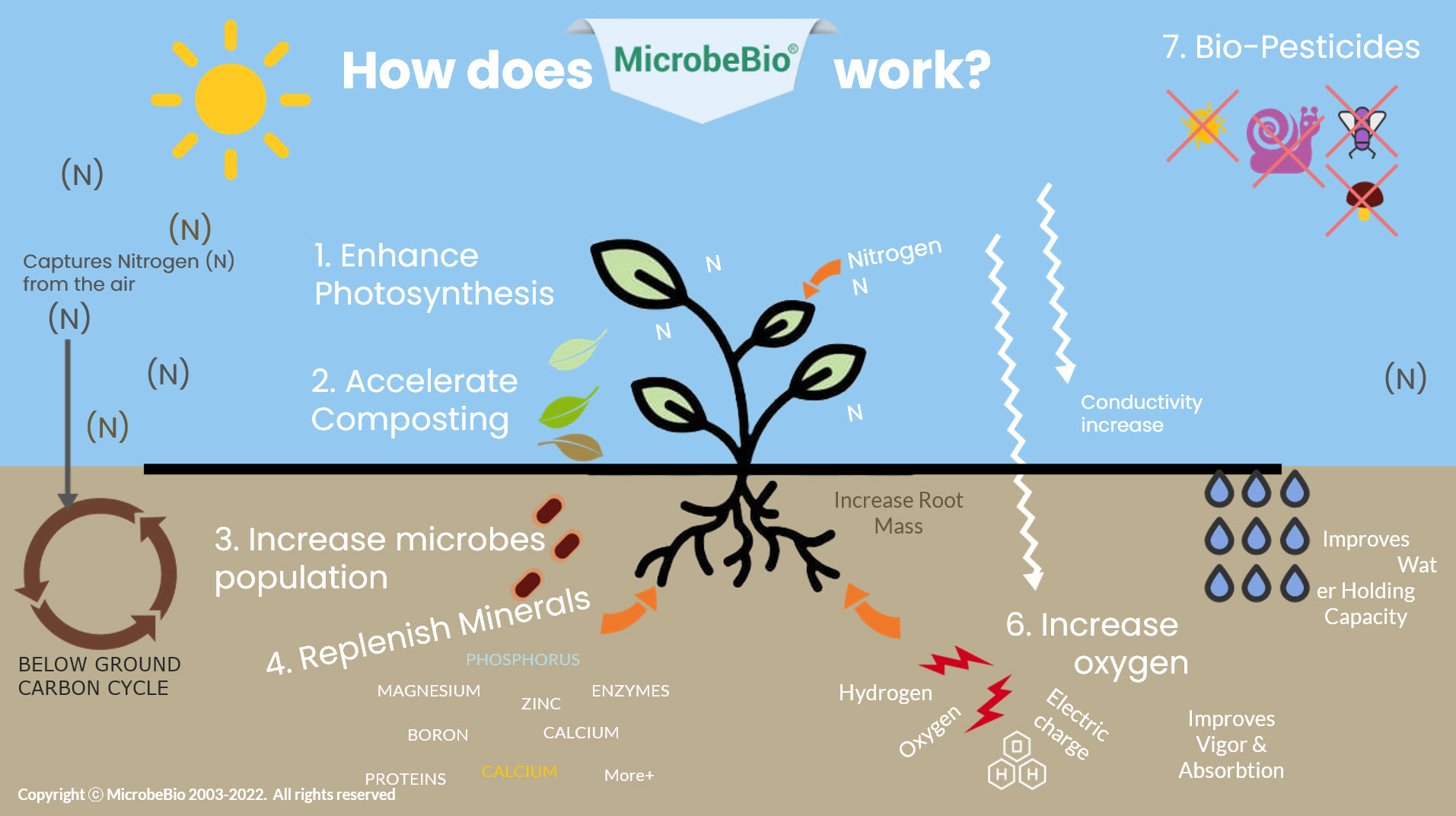
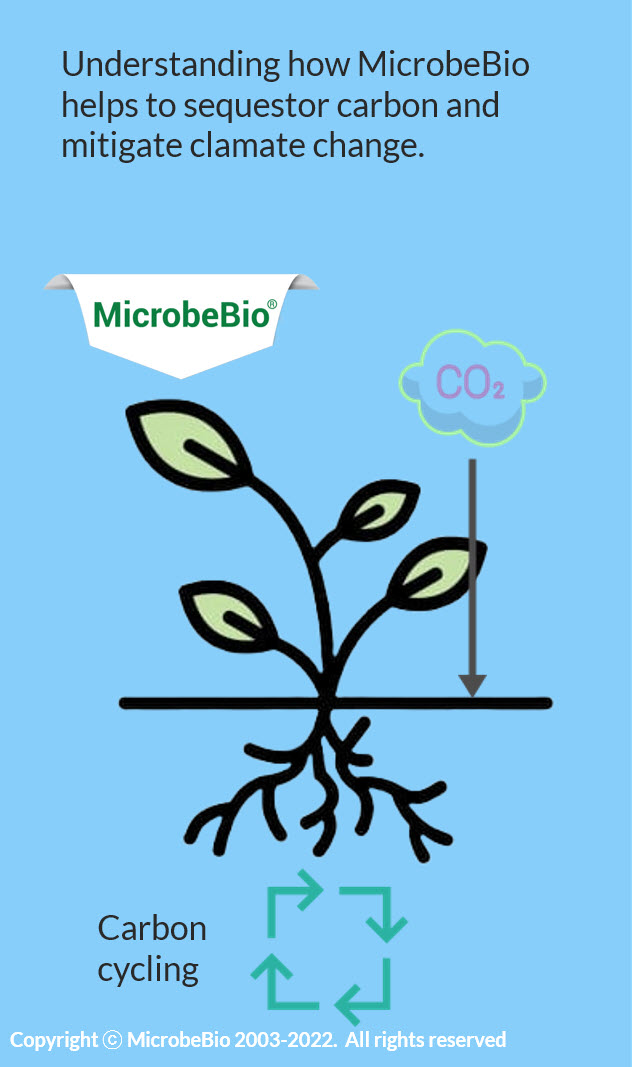
We’re often taught that plants are the lungs of the Earth, producing oxygen for us to breathe. But what we don’t realize is that soils are just as important, if not more so. Soils are rich in many types of microbes, each with its own unique set of features. These microbes work together to convert organic matter into dissolved organic carbon (DOC), which binds to soil particles and stores them in the ground.
This process, known as belowground carbon cycling, is essential to the health of soils. Plants provide organic matter and microorganisms break it down and release it back to plants. This cycle is what allows soils to store carbon, and it’s thought that they have the potential to store more carbon than the atmosphere and vegetation combined.
So why is this important? Well, as we all know, carbon dioxide is a greenhouse gas that contributes to climate change. So by storing carbon in the ground, soils can help to mitigate climate change. Additionally, healthy soils are vital for agriculture, as they help to ensure that plants can grow properly.
So next time you’re outside, take a moment to appreciate the ground beneath your feet. It’s doing a lot more than you might think.
 BLOCKCHAIN IS THE FUTURE OF AGRICULTURE
BLOCKCHAIN IS THE FUTURE OF AGRICULTURE

Farmers
We’ve got everything a farmer needs to be successful. From financing and farm inputs, to advisory services and insurance, we’re here to help you maximize your profit.

Funders
We use blockchain for traceability and to verify data integrity & connect individuals and institutions directly to support farmers.

MicrobeBio
We provide the best organic inputs and advisory services to farmers. We are committed to helping farmers produce the highest quality crops possible. Our products and services are designed to improve yield and quality while reducing input costs.

Buyers
We’re committed to sustainable, ethical sourcing practices. We partner with farmers who share our commitment to quality and sustainability, and use the latest technology to meet the demands of premium retailers and wholesale markets.

Traceability
Gurantee of proof of origin along the supply chain

Funders
Provide smooth transfer of payments and security

Connectivity
Smooth communication and data between external supply chain and advisory services to improve the farmers yield

Market Visibility
Greater exposure to buyers and sellers to make more informed decisions

Blockchain technology has the potential to revolutionize the way we finance farmers and agriculture. By allowing people to directly finance farmers and sharing the risk with them, blockchain can make it easier for farmers to get the financing they need. Additionally, blockchain can help reduce greenhouse gas emissions by providing carbon credits to consumers who finance farmers using regenerative farming methods.
Getting a loan as a farmer can be difficult. You have to have land to offer as collateral, and often the bank doesn’t have an accurate assessment of your crops or yield. With blockchain, you can get a loan based on what you own. The blockchain provides an irrefutable record that proves ownership of animals or crops.
In order to realize these benefits, however, we need to ensure that blockchain technology is accessible to all. One way to do this is by developing user-friendly applications that can be used by farmers and other stakeholders. Another way to increase access is by working with existing financial institutions to help them understand and adopt blockchain technology.
By working together, we can make sure that blockchain technology is used to create a more sustainable and equitable food system. This will not only benefit farmers, but also the environment and the people who depend on agriculture for their livelihoods.
